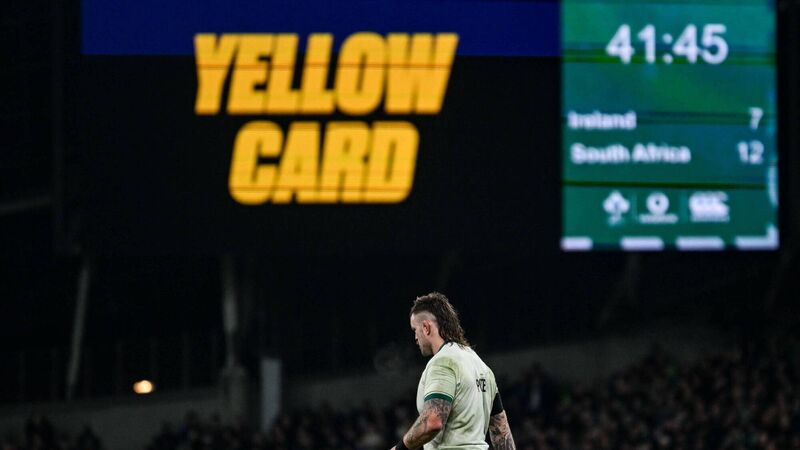Ireland need to clean up their act in time for next Six Nations

DISCIPLINED: Ireland's Andrew Porter was one of four Irish yellows.
If any one Ireland player had cause to be frustrated as they struck camp and returned to the provinces this week then it must have been Tadhg Beirne.
Wrongly red-carded at the start of the month against the All Blacks in Chicago, the Munster forward had a crucial try cancelled at the back end of the window when James Ryan’s kamikaze clearout on Malcolm Marx reduced Ireland in number yet again.












